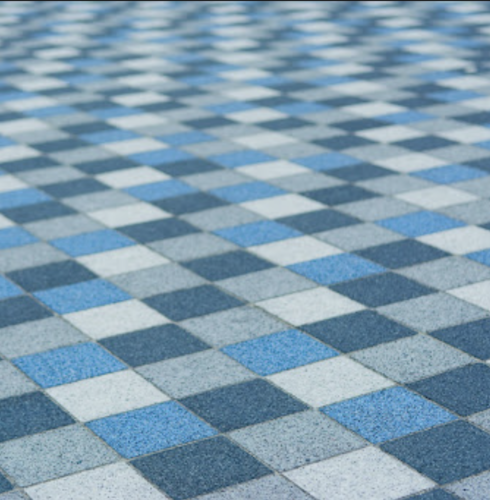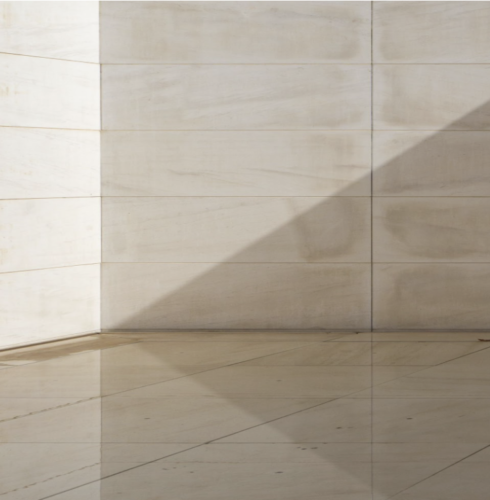How to Clean Natural Stone: 3 Do’s and 3 Don’ts of Natural Stone Floor Maintenance
You’ve had your beautiful natural stone tile , flooring, or counters installed and you’re feeling luxurious! As you should: natural stone tile is sophisticated and classy for bathroom flooring, kitchen backsplash, and many other parts of the home!
In order to keep your natural stone flooring, counters, and tile looking naturally shiny and smooth, you’re going to want to follow a cleaning and maintenance schedule.
There are also things you can do that can harm the look and feel of natural stone, so you need to know how to clean natural stone the right way before diving in.
That’s where we come in! As tile and flooring experts, we’re going to take you through how to clean natural stone tile and give you the top do’s and don’t of natural stone maintenance.
Let’s get started!
DO: Take Preventative Measures
The key to maintaining pristine natural stone tile and flooring is through preventative maintenance!
In high traffic areas where you and your family are walking often, you might want to consider covering parts of the flooring with rugs, runners, etc. On counters, placemats, coasters, and the like are essential.
This will protect those areas from damage from food, spills, shoes, and heavy walking areas. Without this protection, you could see premature damage and a loss of visual quality.
We also highly recommend that you have a sealer for your natural stone. Sealants create a barrier on the top of natural stone surfaces that protect it from everyday damage.
Sealants increase the overall durability of natural stone, which means that your floors will look great for much longer than if you don’t have a sealant applied.
DON’T: Use Cleaners Containing Acidic Compounds
Many floor cleaners contain compounds that work on other types of flooring but that also can seriously damage or harm natural stone. Ammonia, bleach, window cleaner, vinegar, lemon juice, and other acidic components are particularly harmful to natural stone.
In general, before you use a cleaning product, check the bottle to see if it says it can be used on natural stone. If it doesn’t specify that, we do not recommend using it.
Acidic compounds like these can break down the stone and cause damage.
DO: Dust & Clean Spills Daily
Speaking of harmful things on your natural stone tiles and surfaces, spills and dust can cause damage as well.
In areas where you’ll have food and drinks on the surfaces, you should always use placemats or coasters to protect the stone. This is especially true with acidic foods & drinks. Beverages such as soda, coffee, juice, tomato sauce, etc, are acidic and can cause the same damage that an acidic cleaner could.
You want to clean spills as soon as they happen. If the spill isn’t cleaned immediately, it can soak into the natural stone. When cleaning spills, you want to make sure that you blot the spill instead of rubbing it. Rubbing can force the liquid to soak into the stone and can even cause dulling or scratches.
Dusting should be done daily as well. Dust and debris build-up can cause scratches and dulling of the stone, so it should be cleaned daily.
DON’T: Use Soap or Soap Removers
When cleaning, you want to avoid soap and any cleaners that remove soap or mineral deposits.
Soap can leave behind scum that will dull your natural stone. The deposits left behind by the soap are very difficult to remove and removal of that deposit can actually cause damage to your floors or natural stone surfaces.
Soap removers often break down the minerals in the natural stone, which can damage the surface and change the appearance.
DO: Use the Right Cleaning and Maintenance Products
After all this talk of products not to use, why don’t we tell you which tile cleaning & maintenance products we do recommend!
For natural stone, we recommend using neutral pH cleaners that specifically state they are safe for the natural stone you have.
There are many different types of natural stone (granite, marble, limestone… the list goes on), that you’re going to want to make sure that the cleaner you’re using is formulated correctly for your specific stone.
How Often You Should Seal These Areas
In general, the traffic and amount of water on your natural stone tile will determine how often you need to seal your tile.
For example, if you have white natural stone on your shower floor that is constantly being used and soaked with water, you are going to want to seal that three times per year.
If you have natural stone in a high-traffic room containing muddy, sandy, or salty shoes (like a mudroom or entryway, for example), then you should seal that twice per year.
For kitchen backsplash, kitchen floor, or powder room floor, once per year is usually enough.
You can find more detailed information about cleaning products and what we carry on our systems and materials page. Also, if you’d like specific advice regarding a sealing & maintenance schedule, don’t hesitate to ask any of our tile experts.
DON’T: Scrub or Use Scouring Pads
One of the biggest issues for this type of tile is that it can be easily scratched or stained.
If you take the preventative measures that we talked about earlier like using sealants, placemats, carpets, and quick cleaning of dust & spills, that will be extremely helpful for your natural stone floor maintenance.
You also need to be careful with how you’re cleaning natural stone. Scouring pads, brooms with hard bristles, and anything that would be rough with scrubbing are a definite “don’t” with natural stone. This can easily scratch and dull the stone.
How to Clean Natural Stone: Cleaning & Maintenance Advice from the Experts
Hopefully this was helpful for you as you plan your natural stone floor maintenance schedule.
If you have more questions on how to clean natural stone or what products to use, don’t hesitate to contact us. One of our tile & flooring experts will be happy to help you out!
The post How to Clean Natural Stone: 3 Do’s and 3 Don’ts of Natural Stone Floor Maintenance appeared first on Tiles Plus More.



